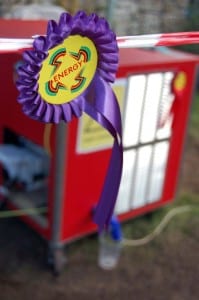Political instability and pipelines projects in Asia and the Middle East – Catch 22?
By news editor, on 1 December 2012
![]() Rashed Sheikh, PhD student, UCL Chemical Engineering
Rashed Sheikh, PhD student, UCL Chemical Engineering
After being invited to the O&G Pipes Global Conference 2012, held by Informa Energy in London, I was exposed to many political, technical and safety issues with top experts in the oil and gas energy sector. This highlighted the challenges that exist in the energy industry today.
 One issue raised was the Iranian-Pakistani gas pipeline, linking the two neighbouring countries. This pipeline is under development and was recently inaugurated by President Asif Ali Zardari of Pakistan and President Mahmoud Ahmadinejad of Iran.
One issue raised was the Iranian-Pakistani gas pipeline, linking the two neighbouring countries. This pipeline is under development and was recently inaugurated by President Asif Ali Zardari of Pakistan and President Mahmoud Ahmadinejad of Iran.
The construction work on the Pakistan side is set to be completed within two years. Across Pakistan, there are thousands of homes and businesses that require a substantial increase in energy. This gas pipeline is one way of alleviating these problems and providing Iran (the world’s second largest holder of gas reserves) with a new gas export route.
It became apparent that these targets are difficult to meet due to political and security challenges and electrical power shortages, as meeting these targets itself requires energy – a Catch 22 situation.
Another issue raised was the Iraqi-Jordanian crude oil pipeline (under development) that links the two countries. This pipeline will help meet the growing energy demands for Jordan and help increase Iraq’s oil output from ~3 million barrels a day in 2012 to ~6 million barrels a day by 2020, and the aim is for it to be completed within five years.
It became apparent that these targets are difficult to meet due to political, security and infrastructural challenges. These problems cause businesses to focus elsewhere – however, Iraq (the world’s largest holder of oil reserves) has the potential to supply energy through to Europe for the next 80 years – another Catch 22 situation?
Seeing the scope of the oil and gas industry provided me with an in-depth view of the energy crisis. It was encouraging to see a new generation of experts exchanging ideas with experienced people, making the future of energy research worthwhile.
Image: oil pipeline by Toni Lucatorto on Flickr
 Close
Close


